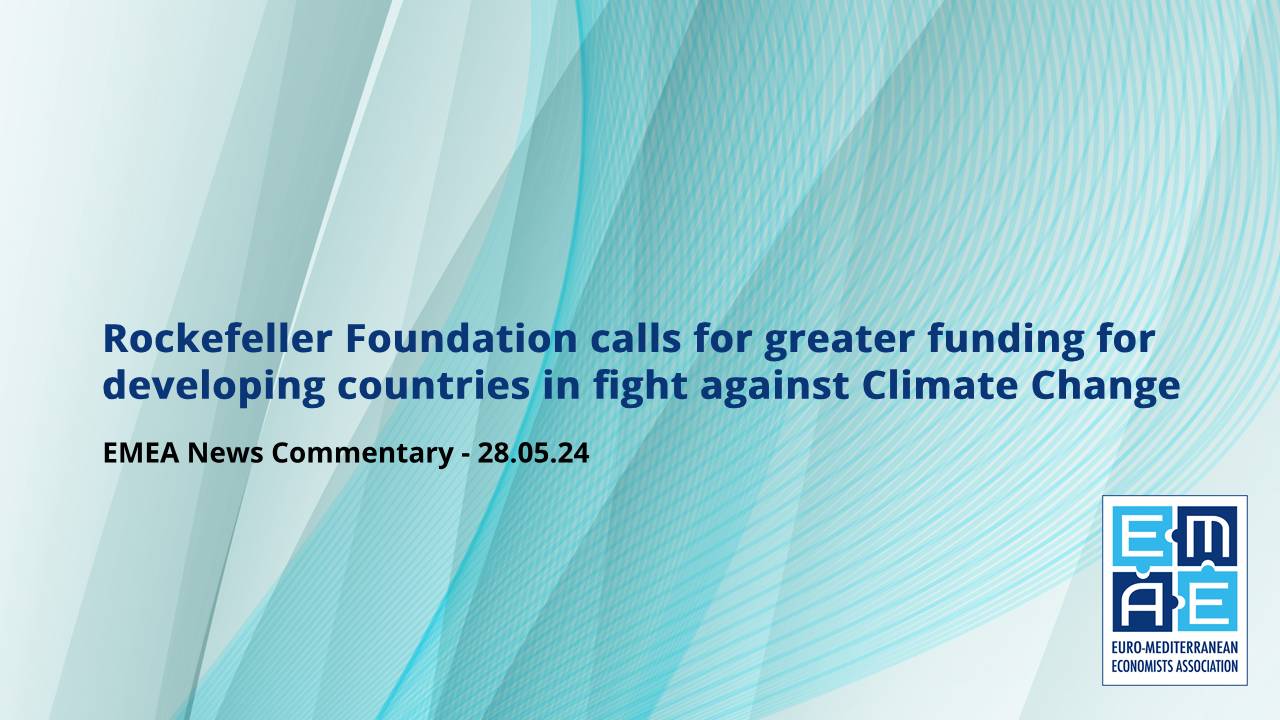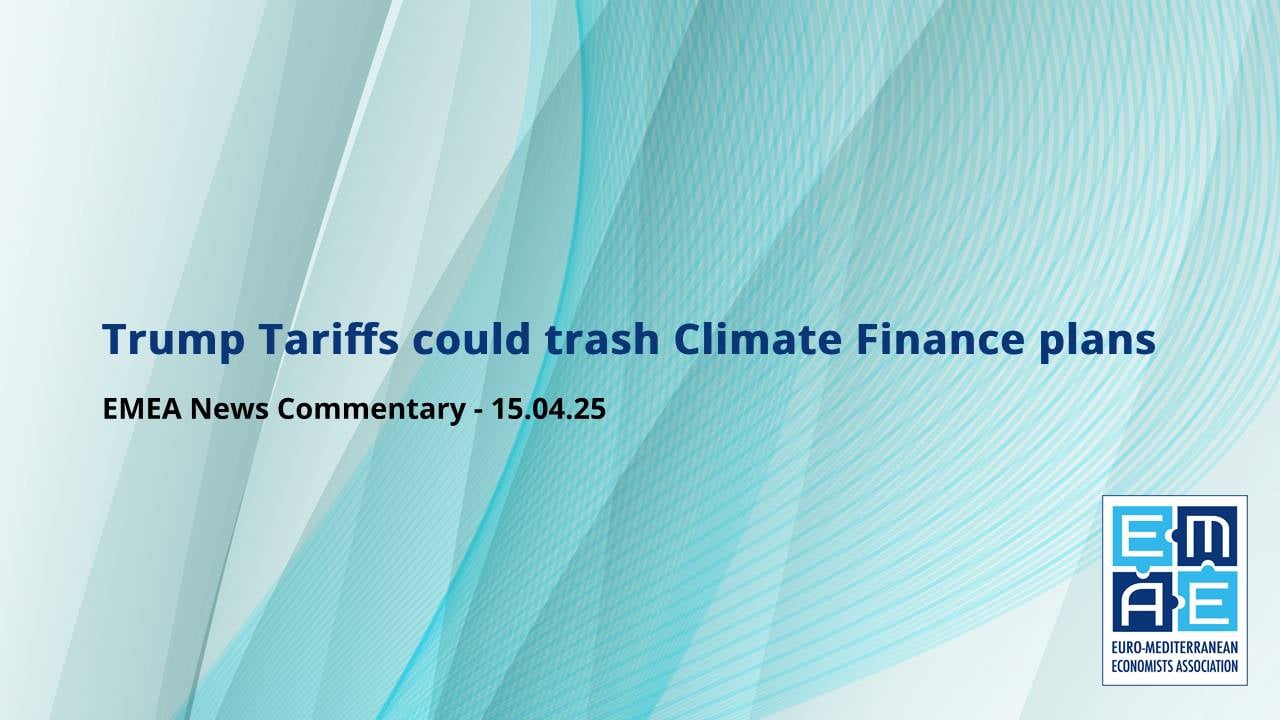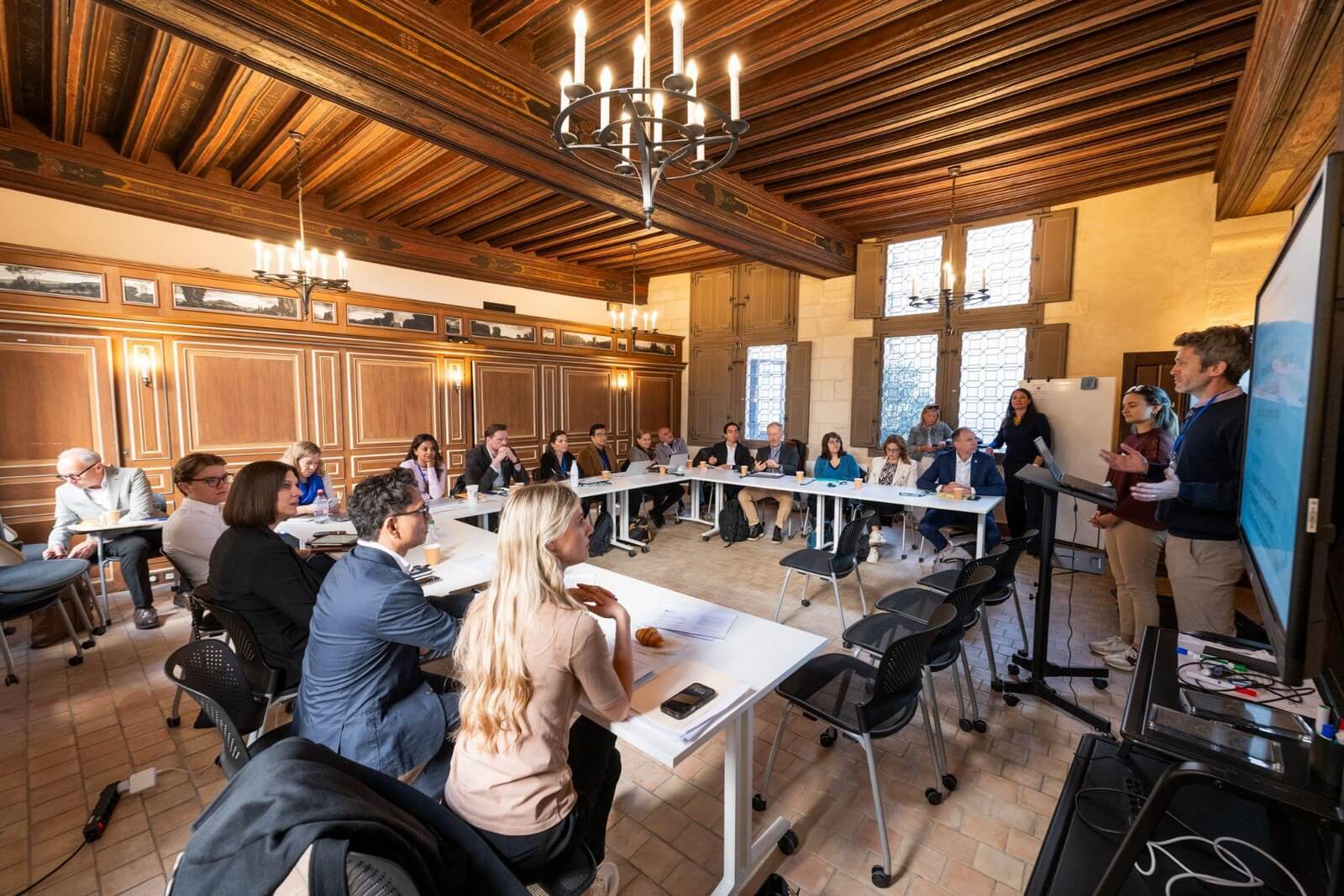The Rockefeller Foundation has said financial assistance for developing countries facing the worst impact of climate change needs to be urgently increased.
That was the message from the Foundation’s Vice President, Eric Pelofsky, in an interview with Media India Group. Vulnerable nations were facing “the risk of debt-trap,” he said.
Asked whether he felt money was now available for the developing world, nine years on from the Paris Agreement, Pelofsky said that there had been a number of challenges in the intervening period, including the pandemic and Ukraine war. Debt crises faced by poorer nations were “very, very real,” he warned.
He referenced an “astonishingly depressing” UNCTAD report, which had revealed that 45 countries were allocating more money to interest payments than to health, with 19 developing nations were spending more on interest than education.
On the subject of whether rich countries would honour their financial commitments agreed at Paris, he gave a cautious assessment. “Unfortunately, in some cases, there is not a recognition that this is a sort of existential crisis for some countries.” But he felt that “most of the people that we engage with are working towards not just incremental change, but real change.”
Despite people being “way more creative” in finding solutions than had been the case for many years, the scale of the problem was “still not understood by all and, hence, they don’t take the measures or go all the way to what is needed.”
He cited the World Bank, as an example, arguing that the Bank had been wrong to change its equity-to-loan ratio by only 1 per cent. Although this had immediately freed up an additional USD 40 billion in lending to poor countries, Pelofsky said: “Our feeling is that they ought to have changed the ratio by 2-3 per cent, making available well over USD 100 billion in funding.”
He said that Rockefeller had spoken about modifications to the callable capital for multilateral financial institutions, in order to beef up the funds available for lending.
“If the governments pay heed to our call, it could go a long way in making a lot more finance available for lending to the developing countries,” he advised.
In terms of climate financing being given “adequate seriousness” in discussions, he said Rockefeller talked about it constantly. This was also true of civil society and a number of Governments on the front line of the crisis. He also noted that there had been “really remarkable leadership” from the G7 and OECD, as part of “an acknowledgement that climate finance has to be much, much larger.”
But Pelofsky countered this by adding that “it sort of sinks below the surface of the sea as we try to figure out actually how to do that.”
Despite there being plenty of goodwill and political appetite to tackle the issue, he said there wasn’t always an acknowledgement of “how dramatic the change has to be.”
He was concerned that with 2024 being a big election year, attention would drift away from climate finance needs. “You can feel the tide of elections reaching into budgets and just drafting people from the knowledge that we are all in this together,” Pelofsky acknowledged.
Despite people standing up “courageously” for the plight of those beyond their own borders – including in the United States – he didn’t believe there was sufficient “political courage” to stem the tide.
He said the Rockefeller Foundation was aiming to establish a coalition of like-minded countries, not just amongst poorer nations. “We work very carefully, very quietly to bring the other countries, in a way that is closed door, candid, not rushed, but is meant to be an honest conversation about what needs to get done.”
He was asked why businesses were not being asked to play a bigger role, with all the financial burden being left at the door of Governments and multilateral bodies. Regarding the mobilisation of private capital, Pelofsky said Rockefeller had been working with the Industrial Leadership Network, which had evolved from the 2018 Canadian G7.
This had brought together institutional investors primarily, but not exclusively, from Canada, “to have a conversation about how to be bolder in the way they invest in the developing world.” He said the Foundation was currently trying to “get to the institutional investors to think new thoughts about how to invest in emerging markets.”
He continued: “We are testing something – we are going to see if it works and if it does, we will know that we should do more. But we are very aware of the role that the private sector needs to play and we are trying to persuade them.”
Questioned as to whether institutional investment should be mandatory, Pelofsky concluded by saying: “That is a conversation that lots of people are having and I think we are trying on the other end of it in and I think people should be thinking about all aspects of it.”





